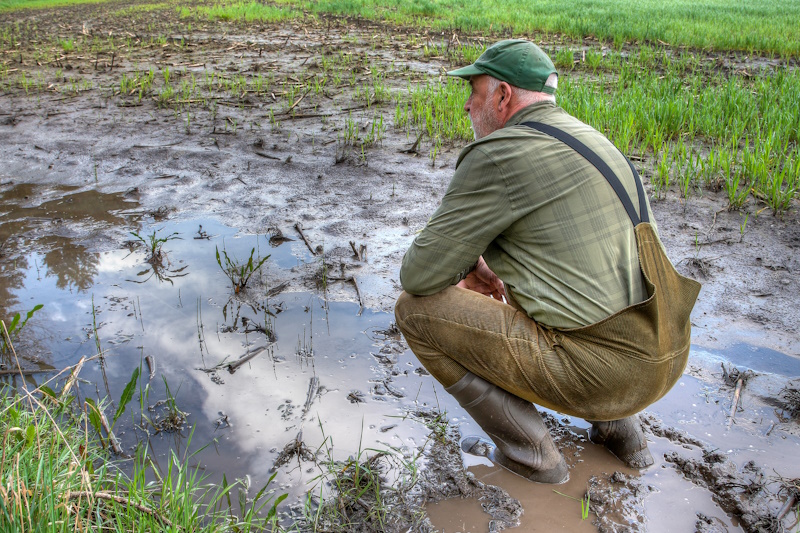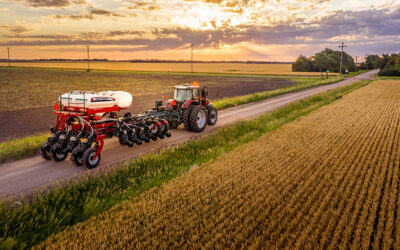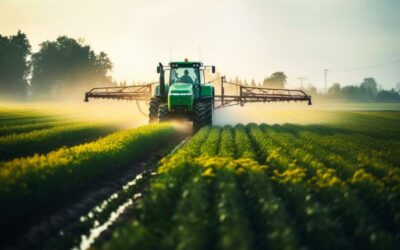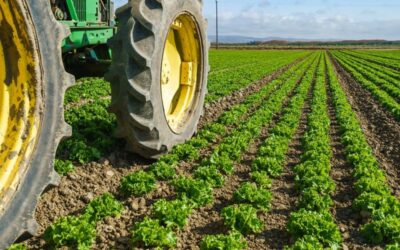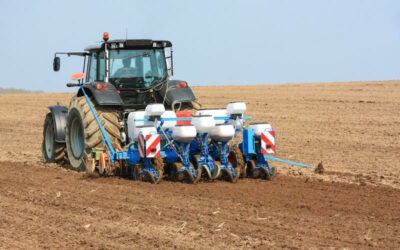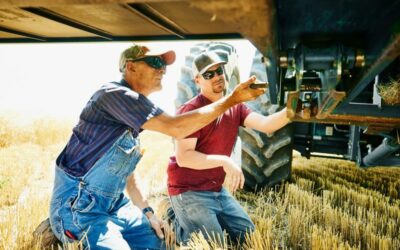1. Prepare for High Heat and Drought Conditions
High temperatures and drought can impact crop growth and place extra strain on equipment. Taking steps to prepare for heat waves is essential to keeping your operation productive during summer’s toughest days.
- Monitor Equipment Cooling Systems: Heat can lead to overheating and engine stress. Check your tractor’s cooling system regularly, and ensure radiator fans, hoses, and coolant levels are all functioning properly. Ziegler Ag offers maintenance services to keep your equipment running smoothly in high temperatures.
- Choose Drought-Tolerant Crops and Adjust Irrigation: Planting drought-resistant varieties and optimizing irrigation can help your crops survive in dry conditions. Ziegler’s range of precision equipment, like Fendt sprayers, allows you to apply water effectively and reduce waste.
- Maintain Soil Health: Healthy soil retains moisture better. Tillage tools from Sunflower and Brandt, available at Ziegler Ag, help you prepare your soil for drought conditions by promoting better water retention and minimizing evaporation.
2. Protect Against Heavy Rain and Flooding
Heavy rain and flooding can lead to soil erosion, nutrient loss, and equipment damage. Proper planning can help mitigate the effects of excess moisture on your farm.
- Implement Proper Drainage Systems: Drainage ditches and tile drainage systems help redirect water away from crops and reduce flooding risk. Consult with Ziegler Ag for equipment and advice to support effective water management on your farm.
- Use Resilient Equipment: Wet conditions demand equipment that can withstand mud, moisture, and challenging terrain. Massey Ferguson tractors and Fendt attachments are designed for durability, providing reliable performance even in soggy fields.
- Prevent Soil Erosion: Incorporating cover crops and reduced tillage practices can help prevent soil erosion and nutrient runoff. Ziegler Ag’s Sunflower tillage equipment can support these practices, helping you manage soil health in wet conditions.
3. Prepare for Freezing Temperatures and Winter Storms
Winter weather can bring freezing temperatures, ice, and snow, all of which impact equipment performance and crop storage. Preparing your machinery and crops for cold conditions is essential for continued productivity.
- Winterize Your Equipment: Before temperatures drop, winterize your machinery by checking antifreeze levels, fuel lines, and batteries. Ziegler Ag provides seasonal maintenance services to prepare your Massey Ferguson and Fendt equipment for winter’s challenges.
- Store Crops Safely: Protect harvested crops from freezing temperatures by using insulated storage or heating systems when necessary. Proper storage preserves crop quality and prevents spoilage.
- Use Cold-Weather Attachments: Attachments like snow blowers and snow blades make it easier to clear paths and maintain farm operations in snowy conditions. Ziegler Ag offers a range of Fendt and Brandt attachments that provide the versatility needed to handle winter tasks.
4. Stay Resilient in High Winds and Storms
High winds can damage crops, structures, and equipment. Preparing for strong winds and having a response plan in place helps minimize the potential for damage.
- Secure Equipment and Structures: During high-wind warnings, secure equipment, buildings, and storage facilities. Protecting machinery from windborne debris can prevent costly repairs. Ziegler Ag’s equipment experts can advise on proper storage solutions for tractors, planters, and more.
- Plant Windbreaks and Buffer Crops: Planting windbreaks like trees or tall grasses along field edges can reduce wind erosion and protect crops from wind damage. This natural solution not only provides wind protection but also supports soil retention.
- Inspect Equipment After Storms: After severe weather, inspect equipment for any signs of damage before using it. Ziegler Ag’s service team is available for thorough inspections and repairs, ensuring your equipment remains safe and reliable after storms.
Why Choose Ziegler Ag for Weather-Resilient Equipment?
At Ziegler Ag, we understand that extreme weather is a constant challenge in agriculture, and we’re here to help you face it with confidence. Our selection of high-performance equipment from Massey Ferguson, Fendt, Sunflower, and Brandt is built to withstand demanding conditions, and our experienced team provides the maintenance and support needed to keep your operation running smoothly.
- Trusted Brands for Tough Conditions: Our equipment from Massey Ferguson, Fendt, Sunflower, and Brandt is designed to perform reliably in extreme weather, offering the durability and adaptability you need to keep going.
- Expert Maintenance and Service: Ziegler’s service team is here to help you maintain and winterize equipment, ensuring it’s ready to handle each season’s unique challenges.
- Commitment to Your Success: With over a century of experience supporting farmers, Ziegler Ag is dedicated to helping you thrive in any weather, ensuring you Never Settle for anything less than reliable, resilient equipment.
Ready to Weather the Elements with Ziegler Ag?
From extreme heat to winter storms, Ziegler Ag has the equipment, expertise, and support you need to face any weather. Trust our team to help you prepare your operation for all seasons and keep your equipment in top shape.
- Explore Our Weather-Resilient Equipment: Ziegler Ag Equipment
- Talk to a Ziegler Representative: Call 800-352-2812 for advice on weather-preparedness for your equipment.
- Visit Your Nearest Ziegler Location: Ziegler Locations
With Ziegler Ag, you’ll find the equipment and support needed to operate effectively, no matter what nature throws your way. Never Settle for less than the best.

